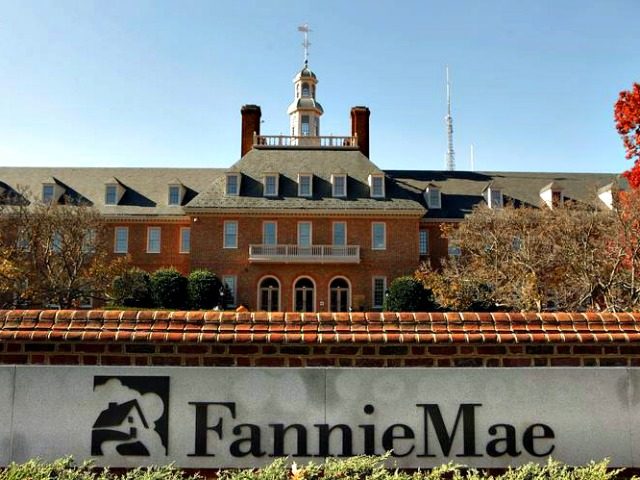A plan to release Fannie Mae and Freddie Mac from government control would recreate the system that delivered private gains to shareholders while putting taxpayers on the line for losses, a group of leading housing policy experts warned Tuesday.
Hedge funds have been shopping a scheme on Capitol Hill that would end the conservatorships of Fannie and Freddie and have them stop handing their profits over to the Treasury. The plan would deliver a huge windfall to investors who own stakes in the two mortgage giants.
While some of inside of the Trump administration are sympathetic to the Wall Street billionaires who would be the biggest beneficiaries of releasing Fannie and Freddie, the plan has run into opposition from housing policy experts on the left and the right who see it as a huge giveaway to the investors.
Breitbart described the plan, developed by the investment bank Moelis & Co, in November:
The Moelis plan stands out as a strikingly bold grab for control of the companies and their profits. It calls for the dividend payments to the Treasury to cease so that the companies can rebuild capital. Shockingly, it also calls for the cancellation of the senior preferred stock altogether–with no compensation for the past risk and future profits currently due to taxpayers. It is as if a company proposed to do a stock buyback by proposing to cancel its shares rather than purchasing them for cash.
This would be an unprecedented giveaway, more akin to government-authorized looting than a “housing finance reform” plan. Even calling it “corporate welfare” would be too generous because the beneficiaries wouldn’t be the companies, which have been prospering under the current arrangement. The beneficiaries would be the owners of the shares of the company, which would receive a massive promotion in the capital structure in exchange for nothing. This is something new–hedge fund welfare.
Taxpayers would surrender an asset–the senior preferred stock–that is expected to return hundreds of billions of dollars, reducing deficits and tax-burdens, over the next decade. And in return they would get nothing except perhaps the gratitude of billionaires.
On Tuesday, some of the most prominent housing policy experts in the U.S. came out against the plan in an op-ed published in the Hill.
Taking advantage of this congressional impasse, several of Fannie and Freddie’s largest investors have banded together to advocate a path out of this state of limbo. Remarkably, however, the path does not lead to a new system as policymakers had intended, but back to the very system we had before the crisis. Yes, the one that nearly took down the economy.
To their credit, the investors recommend retaining some of the reforms that have taken place in conservatorship, such as limits on what Fannie and Freddie can invest in, and higher capital levels. But they would leave untouched the fundamental structural flaw that was the system’s ultimate undoing: the dominance of a duopoly that is too big and too important for the nation ever to let fail.
This makes sense from the investors’ point of view, as Fannie and Freddie’s market power will bring them more profits. But it is absurd from the nation’s point of view.
By once again standing behind the solvency of these two institutions, which taxpayers would have to do for the very reasons we could not let them fail the last time around, we would again give Fannie and Freddie the incentive to take outsized risks.
The op-ed was written by six housing policy experts representing a broad range of political views. They are the former head of Fannie and Freddie’s regulator, Ed DeMarco, the former chief of the Mortgage Banker’s Association, Dave Stevens, Moody’s chief economist Mark Zandi, former McCain campaign economic adviser Doug Holtz-Eakin, Obama administration housing policy adviser Jim Parrott, and Lew Ranieri, the man who is often described as the father of the modern mortgage market.
By subscribing, you agree to our terms of use & privacy policy. You will receive email marketing messages from Breitbart News Network to the email you provide. You may unsubscribe at any time.
President Donald Trump is reportedly planning to nominate Mark Calabria to head up the Federal Housing Finance Agency. Calabria, who is currently Vice President Mike Pence’s chief economist, has been sharply critical of the government’s large role in housing finance and the dominance of Fannie and Freddie in the mortgage market. His position on the Moelis plan is not currently known but it is likely to become a focus of his nomination hearing if he gets tapped to be the agency’s head.

COMMENTS
Please let us know if you're having issues with commenting.